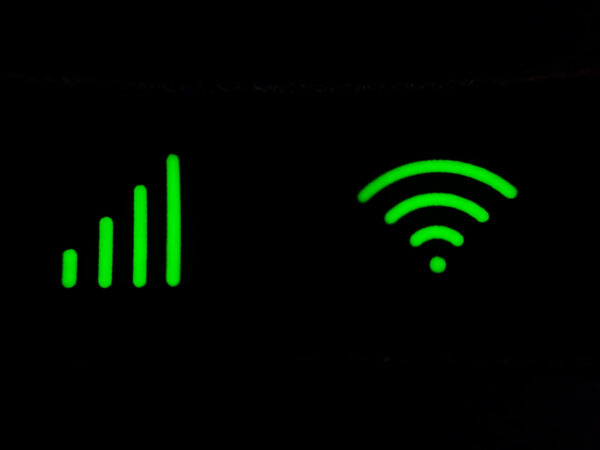In today’s fast-paced digital age, a strong and reliable internet connection is essential for both work and leisure. However, achieving seamless connectivity throughout your home can be challenging. Fortunately, two popular solutions, Extenders and Mesh Networks, have emerged to address this issue.
In this article, we’ll delve into the differences between these options, offering insights to help you choose the best fit for your connectivity needs.
Boosting Connectivity: Extenders vs. Mesh Networks

When it comes to extending your Wi-Fi range and eliminating dead spots, Boosting Connectivity: Extenders vs. Mesh Networks are two prominent contenders. Both approaches have their own strengths and considerations, providing users with distinct ways to enhance their network coverage.
Extenders: Widening the Reach
Wi-Fi extenders, also known as range extenders or repeaters, are devices designed to increase the coverage of your existing wireless network. These devices work by capturing the signal from your router and amplifying it, effectively expanding its reach.
Extenders are a cost-effective solution for eliminating dead zones, making them a popular choice for homes with relatively simple layouts.
Mesh Networks: Seamlessly Connected
Mesh networks take a more comprehensive approach to network expansion. They consist of a network of interconnected devices, including a central router and several satellite nodes strategically placed throughout your home.
These nodes work together to create a unified and seamless network, ensuring consistent coverage across all corners of your living space.
Mesh networks are particularly well-suited for larger homes with multiple floors and complex layouts.
Extenders: Pros and Cons
Pros
- Cost-Effective: Wi-Fi extenders are generally more affordable compared to mesh network systems, making them a budget-friendly option for improving network coverage.
- Easy Setup: Extenders are relatively easy to set up, often requiring minimal technical know-how. Most manufacturers provide user-friendly installation guides.
- Quick Coverage Boost: Extenders quickly provide a noticeable improvement in connectivity, making them a convenient solution for immediate coverage expansion.
Cons
- Limited Network Capacity: While extenders improve coverage, they don’t necessarily increase the overall network capacity. This means that the extended areas might experience slower speeds if too many devices are connected simultaneously.
- Signal Degradation: Extenders repeat the signal from the router, which can lead to signal degradation and slower speeds as the signal travels further away from the source.
- Network Congestion: In densely populated areas with multiple Wi-Fi networks, extenders might struggle to provide stable connections due to signal interference.
Mesh Networks: Pros and Cons
Pros
- Seamless Roaming: Mesh networks create a seamless network environment, allowing devices to seamlessly switch between nodes as you move around your home. This ensures consistent connectivity without disruptions.
- Increased Capacity: Mesh networks can handle a larger number of connected devices simultaneously, making them ideal for households with multiple smart devices, gaming consoles, and streaming services.
- Self-Healing: If one node in the mesh network fails, the other nodes can route traffic and maintain connectivity, resulting in a more robust and resilient network.
Cons
- Higher Cost: Mesh network systems are typically more expensive than Wi-Fi extenders, primarily due to the advanced technology and multiple nodes required for effective coverage.
- Complex Setup: Setting up a mesh network can be more involved than installing a single extender. Users might need to position nodes strategically and configure settings for optimal performance.
- Ongoing Maintenance: While mesh networks offer impressive coverage, maintaining multiple nodes and ensuring their proper functionality might require occasional troubleshooting.
FAQs
Which option is better for a small apartment?
For a small apartment, a Wi-Fi extender might be sufficient to eliminate dead spots and provide adequate coverage.
Can I mix and match extenders and mesh nodes?
While it’s possible, it’s generally recommended to stick with one technology for optimal performance and ease of management.
Will a mesh network slow down my internet speed?
While mesh networks might have slightly lower speeds compared to a direct connection, the difference is usually minimal and well worth the enhanced coverage.
How do I know if I need a mesh network?
Consider opting for a mesh network if you have a larger home with multiple floors, many connected devices, and persistent dead spots.
Can I upgrade my existing extender-based setup to a mesh network?
Yes, many manufacturers offer mesh network solutions that can work alongside or replace your existing extenders.
Are there any security concerns with mesh networks?
Mesh networks are generally secure, but it’s essential to follow best practices, such as using strong passwords and keeping firmware up to date.
Conclusion
In the quest for better connectivity, both Boosting Connectivity: Extenders vs. Mesh Networks have their merits. Extenders offer a straightforward and cost-effective means of expanding network coverage, while mesh networks provide a more robust and seamless solution for larger homes with multiple devices.
Your choice should be guided by the size and layout of your home, the number of connected devices, and your budget.
Whichever option you select, rest assured that advancements in technology are continuously improving our ability to stay connected in every corner of our living spaces.